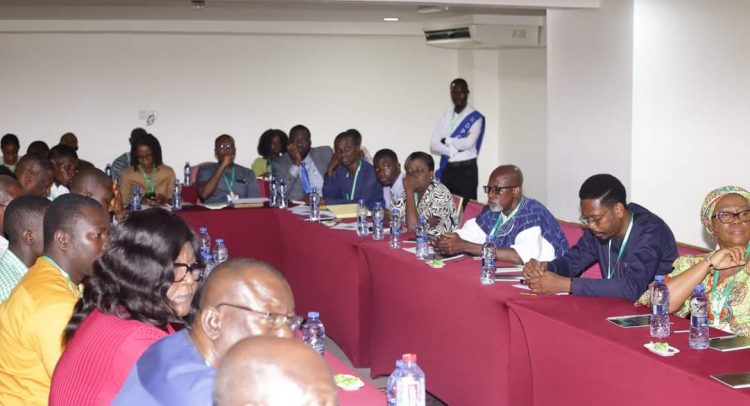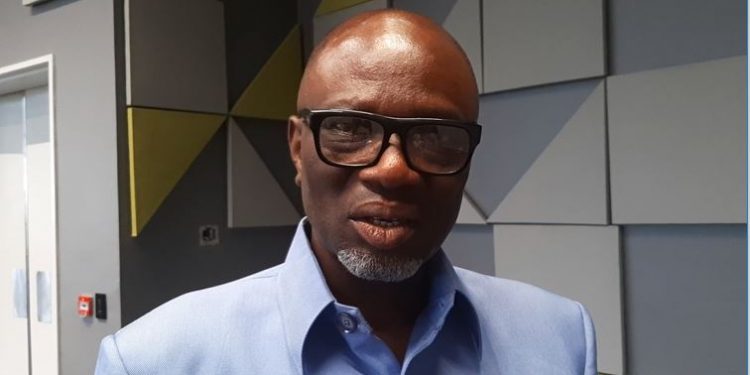
By Sandra Agyeiwaa OTOO and Solange BANSON
The Executive Director of the Data Protection Commission (DPC), Arnold Kavaarpuo, has emphasised that privacy remains a crucial pillar of the country’s digital economy, but warned that limited public education continues to slow progress.
Speaking at the launch of the commission’s new public awareness drive dubbed ‘Privacy is Personal’ in Accra, Mr. Kavaarpuo noted that while regulatory frameworks have advanced in recent years, inadequate citizen engagement has hindered the culture of data protection.
The campaign aims to raise awareness of data rights, promote compliance among businesses and strengthen trust in Ghana’s expanding digital space.
“Privacy is a very important element when it comes to developing any digital economy. Ghana embarked on this journey so many years ago, but for a long time we’ve not had the kind of focus, the kind of attention to build the right level of education in terms of literacy, people’s understanding of their rights and having the tools to be able to enforce those rights,” he mentioned.
Mr. Kavaarpuo noted that many institutions required to register under Act 843 have failed to comply. The law mandates all entities processing personal data to register with the Data Protection Commission but neglect has persisted, resulting in weak awareness and poor compliance with critical data protection obligations.
He added: “Even when institutions are registered, we’re not seeing a lot of efforts in ensuring that there is a trained data protection officer in that institution and this, again, is a requirement under the Data Protection Act. But in order for us to build the resilience of a digital economy, the kind of development and the kind of progress we intend to see, it’s very important to see efforts.”
The Executive Director emphasised the urgent need to monitor how data is harvested, processed and managed with consent. He said the timing is critical, as current focus and attention must ensure the public understands their rights while institutions fully recognise and uphold their responsibilities in data protection.
“We want to see how that data is being harvested, we want to see how it’s being processed, we want to see the consent management process for the processing of this data; and so timing for us is really critical. This is a period where there’s a lot of focus, there’s a lot of attention. I want to make sure that the public is well aware in terms of their rights, and that institutions are also aware of their responsibilities,” he stressed.
To close the gap, the commission is focusing on manpower development through the “One Million Coders” programme. So far, more than 500 people have been trained in data protection, with over 300 certified. The long-term goal is to equip 50,000 individuals to boost Ghana’s digital and data protection capacity.
Mr. Kavaarpuo also said his outfit’s priority is helping the public understand their rights before enforcement begins. Awareness campaigns and thought leadership conferences will follow, addressing sector-specific needs as privacy practices in health, education and other fields differ in application even though the guiding principles remain the same.
“For us as an agency, our focus is making sure that the public can appreciate their rights. From there, we will begin to do a lot of the enforcement effort. This campaign includes awareness as a precursor. We will have some thought leadership conferences so that we can go into more sectoral development,” he revealed.
“The kind of privacy practices you require for somebody in the health sector may not necessarily be the same as in the educational sector. Even though the principles are the same, their operationalisation differs,” he added.
Deputy Minister of Communication, Digital Technology and Innovation Mohammed Adams Sukparu said the ministry’s mandate is to drive Ghana’s digital transformation, expand infrastructure access and foster inclusive growth. He emphasised that privacy and data protection are not merely legal obligations but vital enablers of innovation, competitiveness and citizen trust in the digital economy.
“As the Ministry of Communication, Digital Technology and Innovation, our mandate is to drive Ghana’s digital transformation agenda, expand access to digital infrastructure and ensure that technology becomes a tool for inclusive socio-economic growth. The central part of this mandate is to build a secure and trusted digital ecosystem. Privacy and data protection are, therefore, not just legal requirements but enablers of innovation, competitiveness and citizen participation in the digital economy,” he stated.
According to Mr. Sukparu, Ghana’s vision is to become Africa’s AI Hub, driving innovation, economic growth and social transformation. He emphasised that this ambition hinges on trust as data fuels AI; and without citizens’ confidence in the responsible handling of personal information, adoption and meaningful progress will inevitably falter.
He added: “Today’s campaign launch and the broader work of the Data Protection Commission is, therefore, not just about compliance; it is about laying the foundations for Ghana to lead Africa in responsible, ethical and human-centered AI”.
The post DPC launches ‘Privacy is Personal’ campaign to strengthen digital economy appeared first on The Business & Financial Times.
Read Full Story


























Facebook
Twitter
Pinterest
Instagram
Google+
YouTube
LinkedIn
RSS